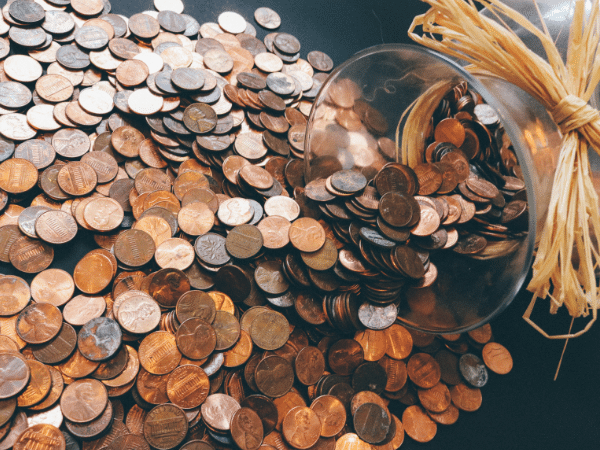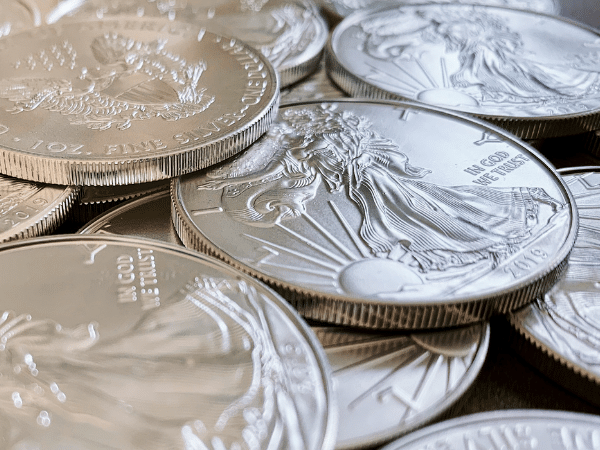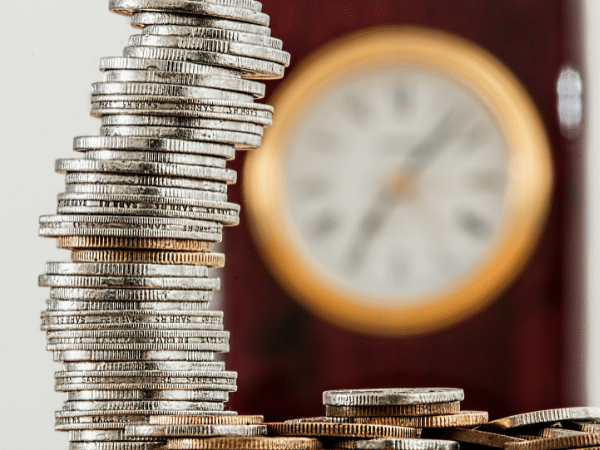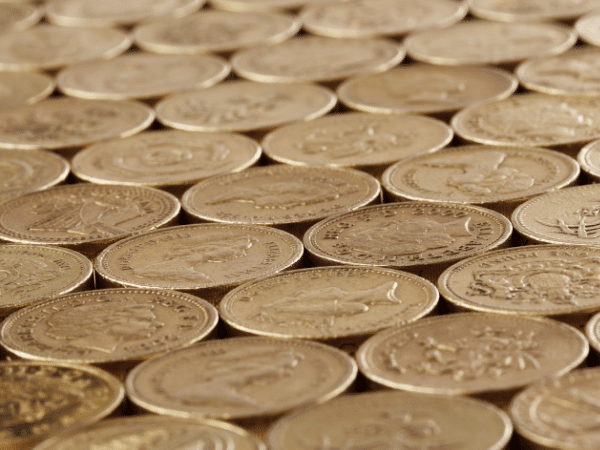During major economic downturns, investors turn to bullion coins and bars. Many people believe it could protect your purchasing power as prices skyrocket. Although, you should be careful as you may get scammed into buying fool’s gold.
We’ll start by explaining what bullion coins are and what they do. You will learn why they’re more than just a shiny collector’s item. More importantly, we’ll discuss how to make sure you purchase the real deal.
Economies run in cycles, meaning there are incredible highs and deep lows. Everything costs too much during those “lows,” but bullion coins may protect your money’s purchasing power. Once the economy gets back up, you could revert them into fiat currency again.
Types of bullion coins

Bullion coins are minted by governments using precious metals. These include gold, silver, platinum, and palladium. However, there are private mints allowed to make these coins.
Specifically, the United States Mint issues the world’s leading investment-grade coins. It creates the American Gold Eagle coins using the highest standards.
Other countries mint bullion coins as well. These foreign options include the Royal Canadian Mint’s Maple Coins and the South African Krugerrand.
Some bullion coins are legal tender, meaning you could pay debts with them. For example, Americans could use Gold Eagles for their obligations.
They have similar face values to regular coins, ranging from $5 to $25. Don’t let that amount fool you. They sell for around $1,300 per ounce!
Each type of bullion coin has its pros and cons. Before you purchase, learn more about your options. This will help you choose wisely.
Gold
Thousands of years ago, people used it to buy stuff. Nowadays, gold bullion coins protect people’s finances against inflation.
Pros:
- It will always have high value because it’s rare.
- Bullion coins keep their value despite inflation or deflation.
- It protects your finances during tough times.
Cons:
- If you want future gains, then it’s a poor investment. Gold preserves its value, meaning it barely goes up and down.
Silver

Some people call silver gold’s “ugly sister.” Yet, silver bullion coins are another way to protect your finances.
Pros:
- Silver has many uses, meaning its value could still rise.
- It also works as a legal tender in the US.
Cons:
- The value of silver is lower than gold.
- Its price goes up and down more wildly.
Platinum
It’s rarer than gold and silver. The total amount that was ever mined would fit in an average living room! This is why platinum bullion coins are also suitable investments.
Pros:
- There’s a limited supply since 75% of it comes from South Africa.
- Platinum has high demand in the car industry, especially in India and China.
Cons:
- Demand for platinum is falling since it’s not needed in electric cars.
- It’s affected by industrial demand that also drops due to inflation.
Palladium
This rare metal is even rarer than Platinum. Still, Palladium has similar uses in electronics and dentistry. It’s also a newer coin compared to gold and silver bullions.
Pros:
- Palladium has been doing better than silver and gold.
- Its demand has risen above 40% in the past.
Cons:
- It’s hard to know where its prices will go.
- Palladium’s uses are too specific. If it’s somehow not helpful in those fields, its price could take a hit.
- People don’t use it as a payment method.
Why buy bullion coins?

Sometimes, an economy may turn for the worst. Perhaps your country is borrowing way too much. Maybe it’s printing too much money, lessening its buying power.
In other words, you’ll have to use more money to buy stuff. Investors know this, so they invest in several properties and physical goods. Among them is the bullion coin.
As we said, its value stays mostly the same despite inflation. Exchanging your money into gold and silver coins could preserve your buying power.
What’s more, certain bullion coins are legal tender. You could spend them almost like regular money. Once the economy improves, you could return it to the common currency.
Numismatic coins vs. bullion coins
If you’re planning to buy bullion coins, be careful. Someone sketchy could sell you a numismatic coin instead. They both sparkle like gold, so what’s the difference?
Numismatic coins are made of gold and silver as well. However, they’re valued as collector’s items. Meanwhile, bullion coins are meant as investments.
These collectible coins are hard to use as a store of wealth. Their value isn’t always connected to the bullion spot price. Only a few collectors could do it.
Learn all you can before investing in bullion. Only do business with a reputable private mint. Check their selection online and ask for more info.
Bullion Coins vs. Bars

You could also buy gold bars instead of coins. If you have a lot of money, a few bars could contain their value much better. Otherwise, you may need too many bullion coins!
Otherwise, you may want to stick with coins. Even better, you could display them in your house! Eventually, you may even sell it to a collector for a hefty price.
What’s more, gold bars are harder to keep safe. They take up more space. Meanwhile, it’s much easier to hide coins. You won’t need a large vault!
How to buy bullion coins
Investing in bullion coins is a big deal. Thankfully, the Federal Trade Commission (FTC) has tips on this kind of investment:
- Shop around – Lots of banks offer bullion coins at a lower price than dealers. Even better, search options online.
- Consult with a financial advisor – Make sure they have a license and know about investing in bullion coins.
- Inquire other sellers for an appraisal – The seller’s price might be too high.
- Ask for the melt value – This is the coin’s value if it was melted then sold.
- Check additional costs – You might want a safe deposit box. Such a pricey investment deserves security.
- Ask for a certificate of authenticity – There should be proof of the coin’s metal content. Check who gave the certificate as it might be fake.
- Be wary of scams – Avoid sellers who want you to buy as soon as possible. Don’t buy if the coins won’t be delivered to you.
Final thoughts
Ask an investor about their strategy, and you’ll often hear “diversify.” They never bank their hopes on just one asset. Besides bullion coins, you should have other investments.
Stocks and bonds could help you hedge against inflation. Long-term dividend stocks and fixed-income even gives a regular payout.
Recently, cryptocurrency has been rocking the financial world. Perhaps you should invest in Bitcoin as it hits new all-time highs.
Learn more about bullion coins
Are bullion coins a good investment?
Gold coins could protect your finances against inflation. It won’t grow in value, though. If you want your money to multiply, check stocks or bonds.
How much is a bullion coin worth?
This depends on your bullion coin. For instance, an American Gold Eagle coin with a $50 face value costs around $1,300.
Is it worth collecting gold coins?
Gold coins become more valuable as time passes. You may sell them to certain collectors for huge sums. Some collect them for their historical importance, though.












